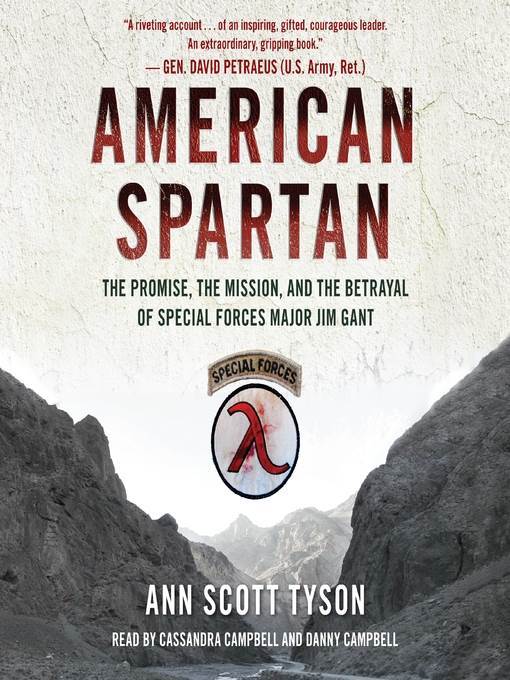
American Spartan
The Promise, the Mission, and the Betrayal of Special Forces Major Jim Gant
کتاب های مرتبط
- اطلاعات
- نقد و بررسی
- دیدگاه کاربران
نقد و بررسی

March 24, 2014
Tyson, a journalist by trade, offers a momentous account of her now husband, Special Forces Major Jim Gant, and his journey into the deep-seated tribal Pashtuns of Afghanistan. Beginning with President Obama's promise in 2009 to end the war in Iraq and ending with Gant's removal from Afghanistan amidst accusations of the abuse of alcohol and pain medications, the book shows the efforts of one man bent on changing the way the military moves in foreign countries. After serving deployments, Gant published an online treatise on why America is destined to lose the war, arguing there is "gaping hole in U.S. Strategy: the failure to systematically engage Afghanistan's powerful Pashtun tribes."Â The paper comes to the attention of President Obama, General Petraeus, and other high ranking military officers who offer Jim the resources he needs to implement his plan. Jim's mission is to assimilate a team of Special Forces to work hand-in-hand with the Pashtun tribes and help to set up the Afghanistan Local Defense Initiative, the Arbakai. In the midst of implementation, Gant starts clashing with U.S. command and his career in the military begins to unravel. Tyson does her best to shade an underlying love affair while showing the action and circumstances surrounding her time with Jim Gant. The affair doesn't appear until page 79 and is never quite awarded the depth of feeling she gives to living in Afghanistan and dealing with the atrocities of war. Many readers will want more on their relationship, at least for the sake of transparency amid Tyson's journalistic style of writing. The overall story is enticing, brutal, and current.

March 15, 2014
To win in Afghanistan, dedicated American soldiers must live among the tribes, earning their trust and molding them into effective fighters against Taliban and al-Qaida networks. Decorated Green Beret Jim Gant made this argument in a 2009 paper that impressed Gen. David Petraeus and other leaders, who told him to go ahead with the plan. Already an admirer, having covered Gant's heroics in Iraq, journalist Tyson recounts the subsequent three years, much of it spent in his company, as his unit moved to a remote village, befriended the chief, and proceeded to hire and train the tribesman who soon drove off the local Taliban. Neighboring chiefs began requesting help, and eventually, documents obtained from Osama bin Laden's compound after his death complained about Gant by name. "The directive mentioned Jim by name," she writes, "and said he was an impediment to Al Qaeda's operational objectives...and needed to be removed from the battlefield." Other units reported similar success, but Tyson concentrates on Gant's campaign, which produced plenty of fireworks, heroism, suffering and, this being Afghanistan, constant frustration. Even as Gant set to work, the American government was announcing its intention to withdraw from the country. By 2012, the process was well under way, but by this time, Gant's superiors, irritated by his independence and nonconformity, relieved him, denounced his tactics and forced him to retire. Tyson presents a damning picture of betrayal by commanding officers whose rigidity and lack of imagination was aggravated by personal dislike. Readers will find her arguments impressive, although they will be surprised by the frank admission that she and Gant fell in love. Tyson can expect an avalanche of criticism for flouting a dozen precepts of journalism, and Gant has been accused of an unrealistically romantic view of Afghan tribalism. Still, readers will encounter one of the only satisfying products of a dismally unsatisfying war: this entertaining book.
COPYRIGHT(2014) Kirkus Reviews, ALL RIGHTS RESERVED.

























دیدگاه کاربران